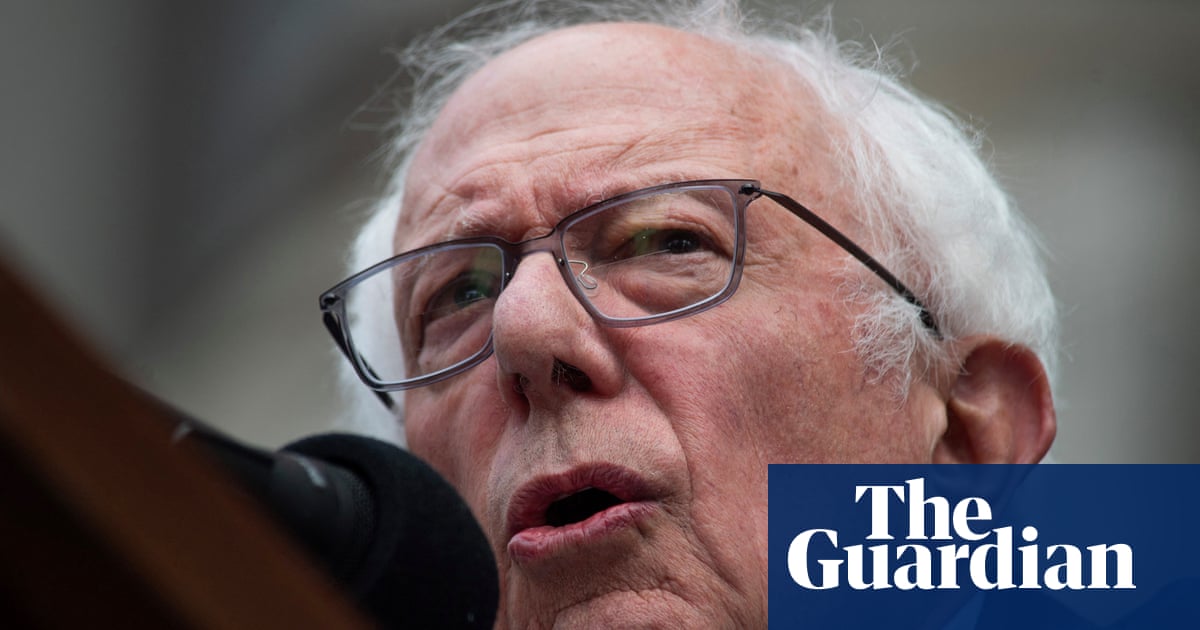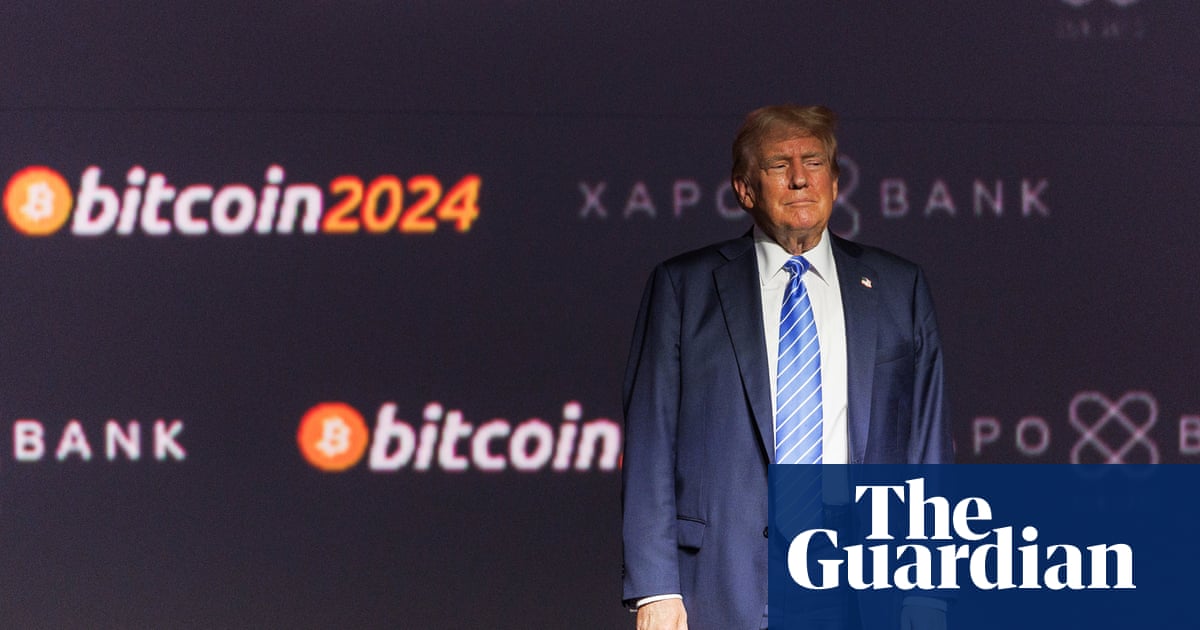Donald Trump’s second election to the presidency sparked soul-searching among Democrats about why the party has continued to lose a range of traditional Democratic constituencies, especially voters without college degrees. In a new book released this week, Outclassed: How the Left Lost the Working Class and How to Win Them Back, Joan C Williams argues that the left fundamentally misunderstands working-class voters.
Williams is a law professor and social scientist who has spent decades studying the relationships between class, gender, labor and politics. Her previous book, 2017’s White Working Class: Overcoming Class Cluelessness in America, argued that working-class Americans felt abandoned by the political establishment. Her new book argues that the Democratic party and the cultural left face an uphill – but not impossible – battle to win back the many Americans who have been drawn to Trump’s rightwing populism.
She spoke to the Guardian about why she rejects the idea that the left must renounce “identity politics”, why she thinks Trump has accidentally created a “generational opportunity” for the left, and how to tell if you live in a “class bubble”.
What was the genesis of your book?
When Trump won in 2016 there was a pretty robust conversation about class in the United States, and I was completely amazed, because it’s something Americans tend to be allergic to acknowledging. But then around 2018 there crystallized an interpretation that Trump’s election was just about racism. This was based on regression analysis that showed that racism is, in fact, the strongest predictor of Trump voting.
But that’s not why Trump won [in 2016]. Trump won because a much larger group of voters – whose attitudes didn’t really differ on race from non-Trump voters – voted for him [in addition to markedly racist voters].

That distinction was kind of a technical point until 2024, when all of a sudden in the US we saw this sharp trend of working-class voters, non-college-educated voters of color, move to Trump. Since around 2012, non-college-educated people of color have shifted 35 points away from Democrats. And the shift is even larger for younger voters of color.
What are Democrats missing or getting wrong?
The left used to be focused on achieving a stable life for middle-class people, blue-collar people. And then in the 70s, my generation of hippies came up and changed that focus to things such as environmentalism, racism, sexism. Those, in retrospect, were things of more concern to college-educated elites.
The left moved away from emphasizing a stable economic future for blue-collar and middle-class voters at just the time when their economic future was being gutted by neoliberalism and globalization. The left also adopted a style that was more a college grad’s style, à la Rachel Maddow, “I’m a smart person talking to you, a smart person,” and “I have a plan for that,” to quote Elizabeth Warren, as opposed to a more working-class style, which Fox and much of the far-right media adopted: direct, blunt, very plain-spoken and often enacting a certain kind of blustering masculinity.
All of this has not been a winning combination for the left.
Your book doesn’t focus on the lowest-income voters, but rather the “missing middle” – the middle 50% of Americans by income. Why is that?
That’s a term from the political scientist Theda Skocpol – middle-status people in routine blue-, white- and pink-collar [traditionally female] jobs. When I speak of the “missing middle”, I’m thinking of the plumber, the tire salesman or even the cashier at Walmart, if she’s married to somebody that brings that income into the middle 50%. Studies show that this missing middle is the group that has veered towards the far right, both in the US and Europe.
The way I define the “elite” is the top 20% by household income, with at least one college grad in the household. Many people, when they think of class, think of economics. But class is often expressed through cultural differences, because our values reflect our lives, and our lives reflect our privilege or lack of it.
Your book talks about the ways that race, class and gender overlap, or don’t. There was a big debate about this after 2016, and some people criticized Democrats for leaning too much into “identity politics” – social justice for specific racial and gender and other groups. How should progressives think about identity?
One of the chief tools that the far right uses to [appeal to the] missing middle is a certain truculent masculinity of, like, “I don’t suffer fools lightly,” “I’m a real man,” “I value real men,” whether I’m a man or a woman.
That form of masculinity is very salient among working-class households, and probably among the fragile and failing middle class, because research shows that men who have been threatened tend to ramp up on masculinity. That’s true across class, but a lot of men’s masculinity in this middle group has been threatened for the simple reason that their jobs have been threatened. These used to be stable middle-class jobs where the father supported the household, and now those jobs are a dying breed.

When it comes to race, the easiest way to explain it is: if you are a racist, you will very likely be voting for Trump. But, blessedly, that’s not enough people to win in the United States. And so what we, the left, really have to focus on is prying away the people who aren’t racist.
When I hear well-meaning people say we need to abandon identity politics – I mean, I’ve literally done 10 years of studies that analyze racial and gender bias in professional organizations, and [those biases] are very strong. So I am not very interested in having [concerns about discrimination] dismissed as “identity politics”.
But quite apart from that, that argument just strikes me as not a great solution for the left, because the left needs not only to appeal to the two-thirds of Americans who don’t have college degrees. It also needs to appeal to me and my friends. I mean, I’m a San Francisco progressive, and we aren’t going to shut up about race and about gender.
What is it about Democrats’ rhetoric or style of progressive politics that is losing voters?
I think that unconsciously the Democratic party thinks of its audience as college grads, and that’s very clear to the people who are listening who are not college grads. The party is just not talking their language.
To give you one example, when Marie Gluesenkamp Perez, who’s a representative from Washington state, talks about the climate crisis, she says: “My family owns an auto body shop, and we can’t work when it’s 116 degrees outside.” That is a way to talk about climate change that is going to connect with different people than if you talk about polar bears, which just associates the climate crisis with elite tastes in travel.
But this isn’t just about messaging. I think the model here is the fight for gay marriage. The stunning success of gay marriage’s legalization happened because the gay liberation movement didn’t just change messaging, they changed priorities. Many early leaders of the movement thought marriage was, by and large, lame. They were not interested in marriage.

But they came to see that ordinary, average gay people were. They wanted to finally be able to say: “Mom, yeah, I got married.” They wanted to join hegemony, not completely trash it. And if the movement was to connect with those people, it was going to have to change priorities and embrace the language of [romantic] commitment. And it worked.
Working-class Americans raise their kids and inculcate in themselves self-discipline, and they highly value institutions that anchor self-discipline – religion, the military, “traditional” and “family” values. And those institutions also give their lives honor and dignity. And for the left to deride these institutions just fuels the right. It is not working for us.
Progressive elites have to develop cultural competence, but that idea also threatens our own identity – our sense that we already know everything. It certainly threatens our identity that we’re very attuned to social inequality, because many of us worked very hard to be attuned to racial and gender inequality. I would just like to suggest that we also need to be attuned to class inequality.
There are always these questions about language. In your book, you use the term “LGBTQIA+”, and at times use the phrase “Latinx”, which is a phrase that very few Hispanic people actually use …
Yes. I only use it among our crowd. I fully understand why we invented some of these specialized terms. I helped invent some myself. But we have to understand that once you put on a class lens, this kind of language is not seen as admirably feminist. This is seen as elite people telling other people they don’t know how to talk, that unless you talk as if you’re in a college seminar, you’re not important, you’re not smart. That is the way these terms are heard.
One of the most interesting parts of your book talks about the difference between “redistributive” policies, which use taxpayer money to fund social programs for poor people, and “predistributive” policies, which instead try to provide well-paid and dignified blue-collar jobs through job guarantees, minimum wage laws, protectionist trade policies, and pro-union policies.
According to your research, many Americans are more supportive of “predistribution.” You cite one study that estimated that Democrats’ emphasis on redistribution rather than predistribution since the 1970s has coincided with the party losing roughly half of its less-educated voters.
To speak broadly, the poor love redistribution for obvious reasons – they’ve gotten screwed, and wish they weren’t. [And elites] like redistribution because it basically says, “I got where I am by merit. Sadly, some other people lack it or didn’t get here for other reasons. Let’s give them a little help.”
The middle does not like redistribution, and the reason is because they have to get up every day to go to an often not-very-fulfilling job, and they don’t understand why they have to do that and other people should get money without doing that. What they endorse at much higher rates is something technically called pre-distribution, and that just means they believe that there should be a fair labor market. They believe the rich are paid too much and that everybody else is paid too little.
And that is literally true. Wages used to rise when productivity did, in the decades after world war two. If that had continued, wages would be 43% higher now than they are. And that is the predistribution message: that hard work should pay off in America, and it used to, and now it doesn’t.
Thanks for talking. Was there anything you wanted to add?
I have invented something called The New Class Bubble Quiz. It’s only 10 questions. It will tell you whether you’re culturally elite or non-elite, and whether you’re economically elite or non-elite. And it could help with the central project of getting people to understand when they’re culturally elite.
One final point: Trump has created a generational opportunity for the left. The tariffs are driving small businesses out of business. That’s a key Republican constituency. And the tariffs are taking away from workers really the only thing they got from globalization, cheap Nikes. At the same time, Doge is targeting social security, Medicare, Medicaid that provides crucial funding to rural hospitals.
If we blow this one – well, we shouldn’t blow this one.
This interview has been edited and condensed for clarity.

 German (DE)
German (DE)  English (US)
English (US)  Spanish (ES)
Spanish (ES)  French (FR)
French (FR)  Hindi (IN)
Hindi (IN)  Italian (IT)
Italian (IT)  Russian (RU)
Russian (RU)  4 weeks ago
4 weeks ago























Comments